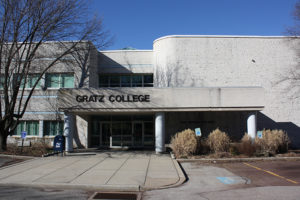In many schools, a “trauma-informed” approach to student discipline is leading to fewer suspensions and expulsions

In many schools, a “trauma-informed” approach to student discipline is leading to fewer suspensions and expulsions, and school leaders credit restorative justice practices and collaboration with staff, community groups, and parents for driving the change.
Godwin Higa, former principal of San Diego’s Cherokee Point Elementary School, recently explained to Nonprofit Quarterly how he worked to transform the school culture when he arrived in 2008, and the impact a “trauma-informed” approach made on student learning.
Higa started by forcing misbehaving students to sit out a recess, rather than send them home, when they acted out in class, and eventually implemented a restorative justice system, which focuses students on acknowledging their action and making amends to those they harm. He also arranged for free breakfasts for all his students, and developed partnerships with local nonprofits to bring in “an array of new services on campus to benefit not only the students and parents, but also the neighborhood,” NPQ reports.
Cherokee Point has since become a distribution center for a local food bank, and a place where medical professionals now offer free dental, eye, or physical exams, along with free counseling for any parent or student.
According to Higa:
When a student at Cherokee Point acts out, punishment is not the first response. An administrator or teacher will likely ask, “What happened to you?”—not “What’s wrong with you?” As Higa explains, “When you ask, ‘What’s wrong with you?’ it’s totally negative right away, versus ‘What’s happening to you, you don’t seem right.’ As soon as we say that, the kids look at you like ‘How did you know that I’m feeling down today?’” When they’re done talking, usually the child feels better and returns to class, the disruptive behavior occurs less often and generally fades away after a few more talks, and a trusting bond is formed, he said.
The trauma-informed approach greatly improved behavior and learning among the school’s roughly 600 students, many of them dealing with serious life issues like drug abuse, gangs, violence and domestic abuse in their families.
Eventually, suspensions evaporated entirely and Higa let the school’s resource officer go in 2015 because “all he did was stand around.”
Cherokee Point’s story isn’t unique.
“The same trauma-informed approach now practiced at Cherokee Point is being adopted in schools across the US. The state of Washington has implemented a Compassionate Schools Initiative; Massachusetts created a Flexible Framework for Helping Traumatized Students Learn program, which arose from a sustained campaign by the Massachusetts Advocates for Children for trauma-sensitive approaches at schools,” NPQ reports.
“Several state departments of education now provide resources to address trauma, including, Illinois, Wisconsin, and Massachusetts. In Idaho, 75 percent of school districts have sent staff to attend Idaho State University’s mental health training program, which includes trauma education.”
The successes at Cherokee Point and elsewhere stem from improving what researchers at the Institute of Advanced Studies in Culture refer to as the “moral ecology” of a community.
In “The Content of Their Character,” a summary of character education in a variety of schools, editors James Davison Hunter and Ryan S. Olson write:
When social institutions – whether the family, peer relationships, youth organizations, the internet, religious congregations, entertainment, or popular culture – cluster together, they form a larger ecosystem of powerful cultural influences.
The trauma-informed approach was spawned by research in the American Journal of Preventative Medicine that explains the “Relationship of Childhood Abuse and Household Dysfunction to Many of the Leading Causes of Death in Adults.”
The 1998 study, referred to as “The Adverse Childhood Experiences Study,” delves into how childhood trauma can damage the function of a child’s brain, which can lead to other serious problems in school and adulthood.



